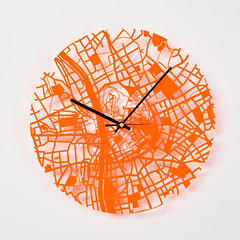I like reading interviews with well known people when they’re asked the question: what is the best invention ever?
For me, the greatest invention of all time, as far as it impacts on my daily life, is the dishwasher. It’s a massive time-saver, time spent on that most tedious of chores.
I’m reminded of this every time my mother hosts a dinner in her apartment, because she doesn’t have one of these magical appliances. My mother would not be shy in using implements in the creation of one of her masterpieces. It’s not unheard of for one of her boys to come from the washing up into the living room to say: Look Mum, I found something in the kitchen you didn’t use!
I’ve briefly touched on the satisfaction of using this appliance before. You stack your dirty stuff, throw in a tab, set the program and close that sucker up. Return a couple of hours later and it’s all done, ready for you or an offspring to load the shelves and cupboards. You can also get cute and stack your dirty things in a way that makes it easier to put the clean stuff back. Awesome.
I realise that this is not the most earth-shattering or uplifting answer to the best invention question, but for me it’s one I’m thankful for every single day. Now if they could figure out a machine that will allow you to wash everything…

